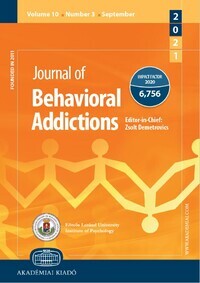Getting “clean” from nonsuicidal self-injury: Experiences of addiction on the subreddit r/selfharm
Getting “clean” from nonsuicidal self-injury: Experiences of addiction on the subreddit r/selfharm
Author(s): Mckenzie Himelein-Wachowiak, Salvatore Giorgi, Amy Kwarteng, Destiny Schriefer, Chase Smitterberg, Kenna Yadeta, Elise Bragard, Amanda Devoto, Lyle Ungar, Brenda CurtisSubject(s): Behaviorism
Published by: Akadémiai Kiadó
Keywords: self-harm; self-injury; addiction; language; reddit; social media
Summary/Abstract: Background & Aims. Previous studies have shown that nonsuicidal self-injury (NSSI) has addictive features, and an addiction model of NSSI has been considered. Addictive features have been associated with severity of NSSI and adverse psychological experiences. Yet, there is debate over the extent to which NSSI and substance use disorders (SUDs) are similar experientially. Methods. To evaluate the extent that people who self-injure experience NSSI like an addiction, we coded the posts of users of the subreddit r/selfharm (n = 500) for each of 11 DSM-5 SUD criteria adapted to NSSI. Results. A majority (76.8%) of users endorsed at least two adapted SUD criteria in their posts, indicative of mild, moderate, or severe addiction. The most frequently endorsed criteria were urges or cravings (67.6%), escalating severity or tolerance (46.7%), and NSSI that is particularly hazardous. User-level addictive features positively predicted number of methods used for NSSI, number of psychiatric disorders, and particularly hazardous NSSI, but not suicidality. We also observed frequent use of language and concepts common in SUD recovery circles like Alcoholics Anonymous. Discussion & Conclusion. Our findings support previous work describing the addiction potential of NSSI and associating addictive features with clinical severity. These results suggest that NSSI and SUD may share experiential similarities, which has implications for the treatment of NSSI. We also contribute to a growing body of work that uses social media as a window into the subjective experiences of stigmatized populations.
Journal: Journal of Behavioral Addictions
- Issue Year: 11/2022
- Issue No: 1
- Page Range: 128-139
- Page Count: 12
- Language: English

